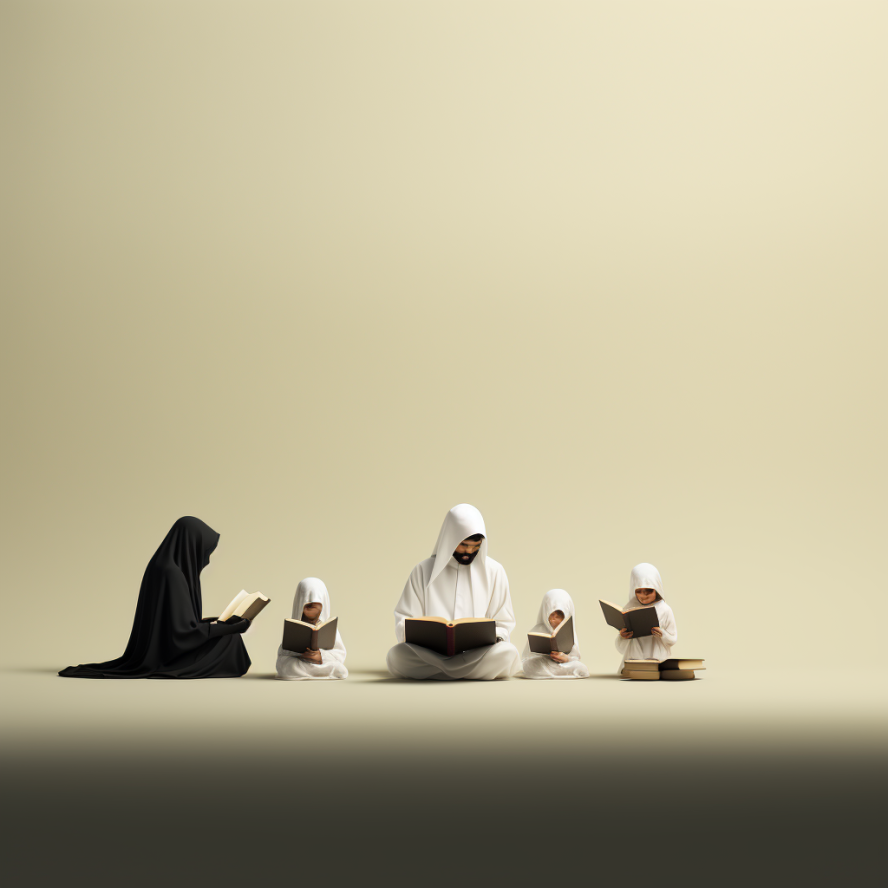I remember a teacher I adored in middle school blowing all our minds with a simple answer to the question, “What about the other religions?” For 6th-graders who attended Catholic private school our whole lives, this was a pivotal moment. I sit here decades later, recapitulating the crucial message delivered by this insightful educator. Catholicism is a monolithic organized religion. Looking back, our teacher’s interpretation of this faith was quite different to say the least. Today, I think of her while I explore parenting and consider the pros and cons of organized religion.
Throughout human history, organized religions provided spiritual guidance, and communal cohesion. However, the drawback that tops the list for me is the notion that a given religion is the be-all and end-all, while people of other faiths are lost and mistaken in their subscriptions. Entire education systems and curriculums were made with the goal of indoctrination. In spite of this fact, students may encounter true scholarly heroes like my 6th-grade teacher. She was wise enough to answer our question with the words: “God approaches different people in different ways.” This response opened our minds and hearts.
As parents and caregivers it is our sacred duty to help our children traverse this intricate landscape with discernment, compassion, and a balanced view. We must show them that it is okay to think freely, maintaining an open mind. We should strive to set a proper example by embracing both the merits and pitfalls of organized religions while they explore their spirituality.

The Pros of Organized Religions
- Moral Frameworks and Spiritual Guidance: Organized religions often offer a well-defined ethical compass. They instill in adherents a sense of right and wrong. In addition, organized religions offer many people a pathway to explore their spiritual selves and connect with a higher power. Some people require a narrative that is well-defined in order to access this part of themselves.
- Sense of Belonging: Religious communities provide a sanctuary of belonging. Members undoubtedly find camaraderie, support, and a shared identity. This sense of connectedness can bring comfort during challenging times and a source of celebration during joyous occasions. For nondenominational families, finding like-minded communities can be challenging.
- Rituals and Traditions: Rituals and traditions in organized religions carry profound symbolic meanings and cultural significance. They can bring a sense of continuity, rootedness, and purpose to our lives.
Parenting and The Cons of Organized Religions
- Dogmatism and Intolerance: Many organized religions promote rigid dogmas and foster intolerance towards those who do not share the same beliefs. Furthermore, these trends can cause unnecessary trauma in the difficult years of self-discovery for children and teens. A Bible verse that comes to mind is Romans 10:9 which states, “…If you confess with your mouth that Jesus is Lord and believe in your heart God raised him from the dead, you will be saved.” In the Quran, the Sūrat āl ʿim’rān is essentially about the fact that Islam is the true religion and those who reject it will face terrible consequences. It states in verse nineteen of chapter three, “…and whoever disbelieves in the communications of Allah then surely Allah is quick in reckoning.” These examples show that in addition to sheer intolerance, there is an undercurrent of threats, retaliation and exclusion from being saved after death.
- Suppression of Critical Thinking: Organized religions often discourage questioning or skepticism, limiting intellectual growth and personal exploration. When raising our children, do we not want to facilitate their intellectual development the best we can?
- Conflict and Extremism: Religious ideologies have been manipulated to fuel violence or even extremist movements. For example, The Crusades, The Partition of India, the religious wars of Central Africa, exhibit the atrocious direction humanity can go for the sake of faith. A controversial book, The End of Faith: Religion, Terror and the Future of Reason by neuroscientist Sam Harris, presents the scary argument that with our current weaponry religion has world ending potential. It can certainly be argued that Harris is being a bit extreme. However, his argument is still worth a bit of consideration and religious leaders should be wary of how they guide their constituents.
Guiding Children through this Landscape
- Promote Open Dialogue: Encourage your children to ask questions and express their thoughts about religion. Facilitate open discussions about various beliefs. Furthermore, respect their curiosity and help them explore different perspectives. It is okay to be transparent about the fact that we as parents do not know everything. We certainly don’t have a definite answer to, “Who made the universe?” Consider these innocent inquiries as opportunities to ponder about these profound topics alongside your child. Children can be fun to talk about life with!
- Teach Tolerance and Empathy: Instill in your children the values of tolerance, and respect for diversity. Emphasize that people’s beliefs and spiritual journeys may differ, but embracing these differences enriches our understanding of humanity.
- Expose Them to Different Faiths: Offer opportunities for your children to experience various religious practices. Show them several ceremonies, promoting an appreciation for the beauty of different traditions.
- Encourage Critical Thinking: Nurture your children’s critical thinking abilities by fostering a balanced approach to religious teachings. Encourage them to evaluate beliefs critically while recognizing the positive aspects they can embrace. There is value in the lessons of all the major religions. Whether it is the Vedas, the Tripitaka, Torah, Quran, or Bible, there are messages about how to live the best life one can. As stated in the Bhagavad Gita, “…Gita’s subject is the war within, the struggle for self-mastery that every human must wage if he or she is to emerge from life victorious.”
To Conclude:
In the intricate terrain of organized religions, lie both profound virtues and inherent complexities. As parents, it is our privilege and responsibility to guide our children through this with prudence and compassion. By nurturing open-mindedness, empathy, and critical thinking, we empower them to seek their own meaning of life and spiritual journeys. Who are we to draw their horizon? It may be best to enable them to draw their own.













